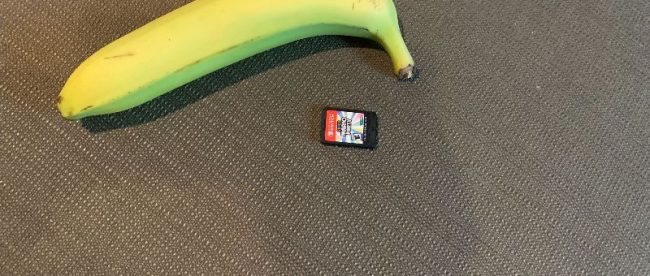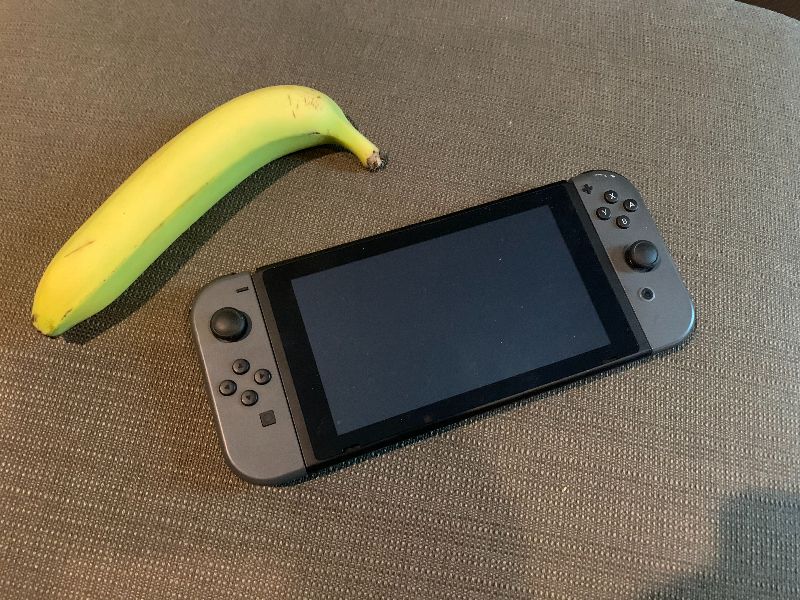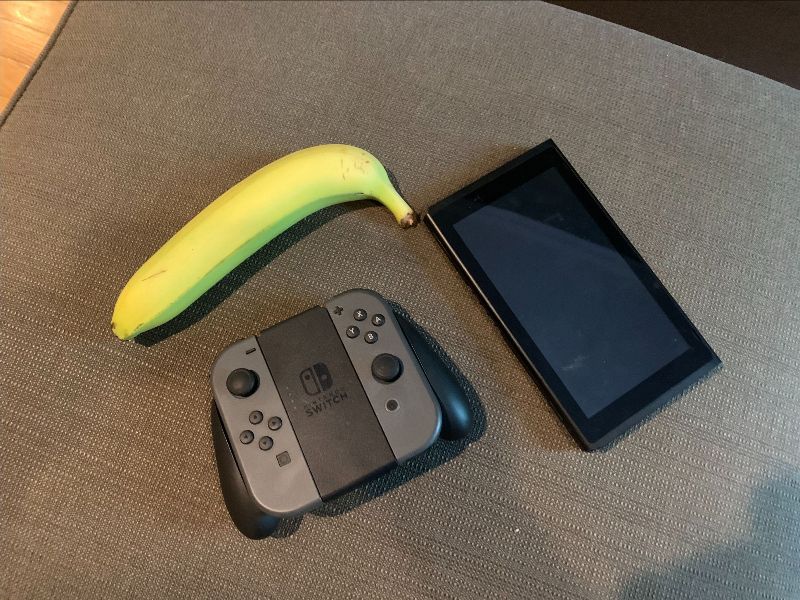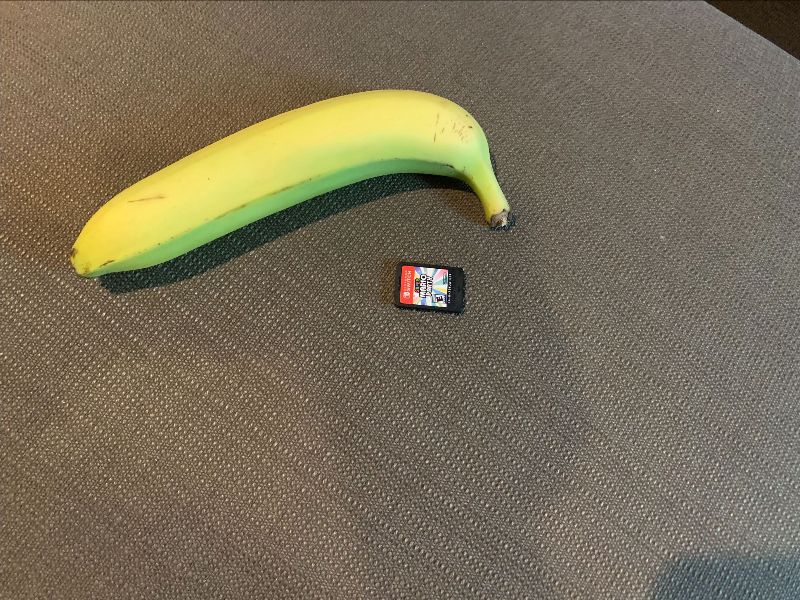When Video Games Go Bitter


Pictured above is a Nintendo Switch (banana for scale), a gaming console released in 2017. It’s a hand-held device, as you can see, although it doesn’t have to be. As seen below, the controls at the side pop off and can become a stand-alone controller. The screen plugs into a dock (not pictured) which, in turn, plugs into a television. That’s where the device gets its name — you can “switch” the game from the small screen to the large one, and rather seamlessly at that.

That functionality comes with a cost, though. While you can download games over the Internet, you can also buy a physical version in the form of a game cartridge. And there’s not a lot of room for that. The Switch itself is rather small and needs to be light as well, and for good gameplay, you want the screen itself to take up a lot of space. The screen part, not the joystick part, is what plugs into the television, so you need to find a spot on that device for the cartridge. As a result, Nintendo Switch games are really, really small. Here’s another picture with the same banana, again, for scale.

It’s tiny, right? Very easy to lose, too (trust me) and therefore, very easy for one to accidentally fall into the unwitting grasp of a toddler. And that’s a problem because, unlike the banana, Nintendo Switch cartridges are not intended for human consumption.
The solution? Unlike the banana, Nintendo Switch cartridges taste really, really bad.
In 2017, as Polygon reported, “reviewers at various outlets have been gamely putting Switch cartridges in their mouths in the name of science and journalism.” The trend was prompted by a tweet from game journalist Jeff Gerstmann, sharing a strange public service announcement — Switch cartridges taste awful. Said Gerstmann, “I put that Switch cart[ridge] in my mouth and I’m not sure what those things are made of but I can still taste it. Do not try this at home.”
The taste comes from a substance called denatonium benzoate, marketed commercially as Bitrex. According to the Bitrex website, Guinness World Records recognizes denatonium benzoate as “the most bitter substance in the world.” Further, the Bitrex, if you “dop a thimble-full of Bitrex into an Olympic swimming pool,” you’ll be able to “detect the bitterness in those two and a half million liters of water.” That’s a good thing, too, because denatonium benzoate may taste awful, but it’s otherwise harmless. Manufacturers often add it to their toxic items to prevent children from swallowing the actually harmful stuff — kids tend to spit out the denatonium benzoate-coated item instead of swallowing it.
That’s what Nintendo was aiming for as well. As the company told Polygon in an update to the above-linked article, denatonium benzoate is added is “applied to the game card to avoid the possibility of accidental ingestion.”
The only problem with the solution? It may not work. Researchers previously reviewed the data behind accidental poisoning to see if children were less likely to swallow antifreeze “tainted” with denatonium benzoate, and the results weren’t promising. In 2009, Poison Control summarized the findings on its website: “two studies cited above do not support a role for this chemical in reducing poisonings, unintentional or intentional.”
Bonus fact: If you’ve ever bit into a cucumber and found it surprisingly bitter, you’re not alone. Cucumbers contain a (harmless) compound called cucurbitacin, which tends to concentrate on the edge of the vegetable that has the stem attached (or had the stem attached previously), and within the cucumber’s skin. As a result, you can avoid the bitterness by cutting off the ends and peeling away the skin, and washing off your knife before cutting into the part you want to eat.
From the Archives: The $13,000 Nintendo Game: Don’t lick it, it’ll ruin it.
